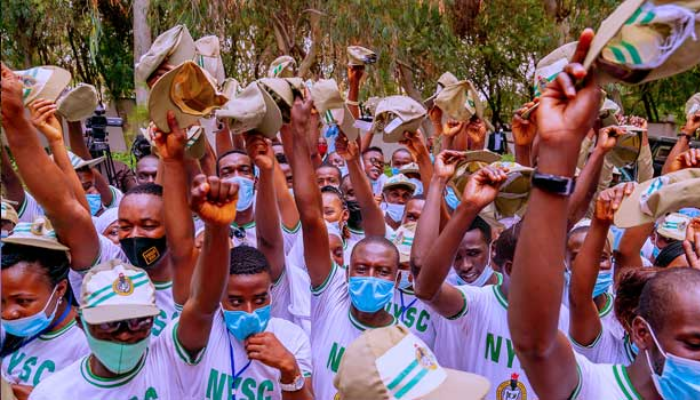The Nigerian government has created a new committee to completely update and improve the National Youth Service Corps (NYSC).
Omolara Esan, who handles public relations for the Federal Ministry of Youth Development, announced this plan in a statement on Tuesday.
Esan explained that these changes aim to make the NYSC stronger and more relevant to today’s Nigeria. The reforms will focus on better meeting both national development goals and the changing needs of Nigerian youth.
During the ceremony in Abuja, Youth Development Minister Ayodele Olawande highlighted that the NYSC has been vital for promoting national unity since it began in 1973. However, he said it’s now time to update the program.
“The issue of safety of corps members, infrastructural deficits, and the broader question about the relevance of the scheme in an increasingly dynamic socio-economic landscape are some of the challenges faced,” he said. “But these also present opportunities that demand urgent, visionary, and determined action.”
Olawande explained that the committee will thoroughly review the NYSC and suggest changes to make it “secure, innovative, and impactful.”
Read Also: House of Rep members frown against Nigeria’s inclusion on CPC
The committee’s main tasks include:
- Reviewing current NYSC policies and laws
- Gathering feedback from people across Nigeria
- Suggesting changes to the NYSC Act and how the program operates
- Proposing better ways to fund and evaluate the program
The minister emphasised that all changes must support national development goals and strengthen how the NYSC helps young people and builds the nation.
Education Minister Tunji Alausa also attended the ceremony and suggested creating specialised branches of the NYSC. He proposed a teachers’ corps for education graduates willing to work in rural areas, and a medical corps for healthcare workers.
Alausa explained that a teachers’ corps could help fix education gaps in underserved areas and provide a path to government jobs. The medical corps would improve healthcare in rural communities, especially for mothers and children.
Hadiza Bala Usman, who advises the President on policy coordination, spoke about connecting technical training with formal education. She said this would give young people practical skills to make “meaningful, long-term contributions” to their communities and Nigeria as a whole.
The committee is required to submit a detailed report to the Youth Ministry within a specific timeframe, though the exact deadline wasn’t mentioned.

